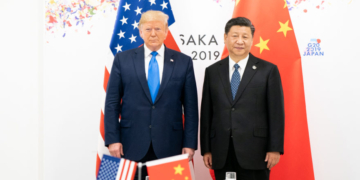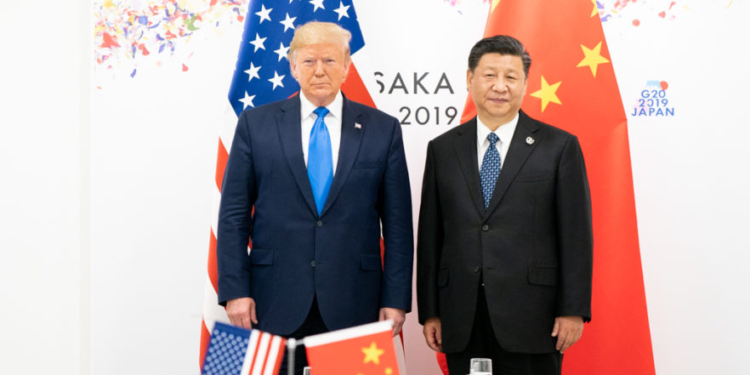Despite somewhat-gloomy and ultra-gloomy forecasts, the defense industry should welcome President Trump’s new tariff program. Not because the profits will somehow balance out – they likely will not. But because the tariffs will give the defense industry – and our national security – the re-alignment around the friend/foe distinction that it needs.
Due to its security-oriented nature, the defense industry is insulated from tariffs compared to other industries. National security necessitates that any international suppliers and customers of our defense systems are preferred, friendly nations. So any tariff-based disruption within the defense industry would reveal countries that are not true allies willing to honor reciprocal tariffs; and therefore, not good candidates for collaboration.
The process of designing and building weapon systems should be as insulated from tariffs as that of any industry. Federal export controls heap tedious paperwork upon any attempt to work with international suppliers – even Canada or the UK. This security-driven hurdle places a priority on working exclusively with American suppliers. Some projects boast high-profile international sub-contractor relationships, but this is far from the majority case. While it may be unrelated, the long list of issues associated with the F-35 does not shine a favorable light on complex international supplier arrangements.
Despite federal restrictions and exclusionary qualifying country lists, it has been suggested that China has established a dominant presence in our defense supply chains. If this is true, the tariffs will flush the Chinese suppliers out. China has already announced – within 48 hours of President Trump’s historic tariff announcement – that it will increase its existing tariff by 34% in response to our new “adjusted reciprocal” tariff of 34%. The possibility of China blowing its position in our defense supply chains where it should never have been – by squawking over money – is amusing to say the least. No audit or legislation could accomplish this so readily.
What about our international customers, the trusted few on whom we bestow the best defense systems in the world? They can respond to the new tariffs how they see fit, and we can negotiate accordingly. But with 50+ countries lining up to negotiate their tariffs just three days in, there is reason to be optimistic.
Friendly countries will find a way to continue working with us and buying our product. Benjamin Netanyahu already reduced Israel’s tariff on US goods to zero in good faith, by contrast to Politico’s Henny Penny routine suggesting Israeli-US defense collaborations will be threatened by the new tariffs. President Trump’s planned “Golden Dome” project looks as promising as ever. Taiwan, a prolific customer of several defense systems, wants to go to zero tariffs and make further investments here.
Even if some customer countries such as the UK and France decide to go their own way on account of the tariffs, isn’t this good for international relations, and for technology? Airbus has a defense division, and builds excellent commercial aircraft with soaring vision. France could create its own dedicated fighter jets, which would ultimately make American combat aircraft better.
Friendly competition is higher-octane engineering fuel than simply improving on your own latest design. Diversity is strength when a seemingly single point of failure fails. Losing a monopoly is hard on the balance sheet, but market competition is arguably better for joint national security among friendly countries.
President Trump’s new tariffs give us a pro-active economic, rather than a lagging political or kinetic, litmus test with which we can re-assess our defense industry partnerships. These are America’s new terms and conditions. Countries that like and admire us will continue to work with us, even if as “competimates”; those who don’t will be shown the door.
Vanessa Battaglia is a defense engineer with 14 years’ experience designing software, hardware, and airborne systems for the Army, Navy, Air Force, Space Force, Special Operations Command, and the Federal Aviation Administration. She spent most of her time in the defense world at Raytheon, and lately writes for The Federalist and Human Events as well.
The views and opinions expressed in this commentary are those of the author and do not reflect the official position of the Daily Caller News Foundation.
All content created by the Daily Caller News Foundation, an independent and nonpartisan newswire service, is available without charge to any legitimate news publisher that can provide a large audience. All republished articles must include our logo, our reporter’s byline and their DCNF affiliation. For any questions about our guidelines or partnering with us, please contact [email protected].



























 Continue with Google
Continue with Google